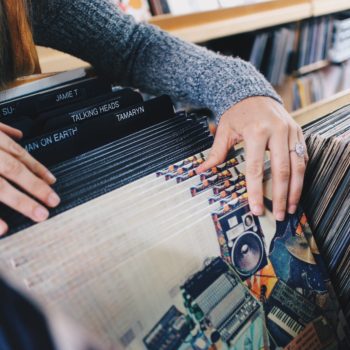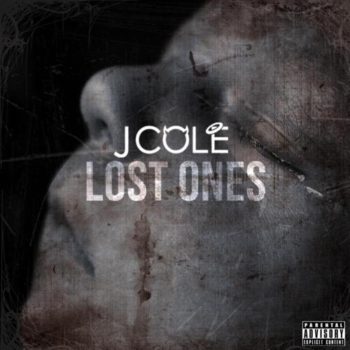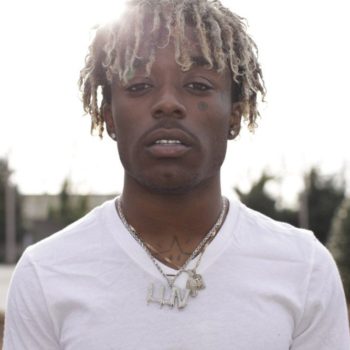“We don’t want you here.”
Whenever I see an article about white privilege, a Macklemore interview about race, or an Azealia Banks tweet about white appropriation in hip-hop, I think of that phrase. Black people built an entire culture off of “we don’t want you here,” and now too many of us are looking through the peephole at the door of the house we built, at all the white people looking to come inside, and some of us are saying “we don’t want you here, but if you do come in, make sure you wipe your feet and tread lightly.”
“And God help you if you take anything.”
This is what the idea of white appropriation in hip-hop has started to feel like, and Iggy Azalea has become the poster-woman for the topic. Harlem emcee Azealia Banks has been openly vocal and confrontational about her feelings towards Iggy Azalea‘s music and the perceived privilege she garners as a white artist. With “Fancy” being such a huge hit in 2014 and Iggy’s Grammy nod for Best Rap Album, it seems we’re on track to have a repeat of the infamous Kendrick Lamar – Macklemore controversy where K.Dot’s good kid, M.A.A.D city was snubbed for Best Rap Album in 2013.
 The topic of white privilege has become even more prominent as police brutality against black people has been the reigning discussion nationwide this past year. Hip-hop was born from such discrimination and a level of racism that far exceeds the culture’s life span. It hurts to see white artists excel within a culture that they did not have to bleed for. Black people have demanded that they treat it with respect and produce something of quality, a sentiment that seems to have fallen squarely on Iggy Azalea’s shoulders.
The topic of white privilege has become even more prominent as police brutality against black people has been the reigning discussion nationwide this past year. Hip-hop was born from such discrimination and a level of racism that far exceeds the culture’s life span. It hurts to see white artists excel within a culture that they did not have to bleed for. Black people have demanded that they treat it with respect and produce something of quality, a sentiment that seems to have fallen squarely on Iggy Azalea’s shoulders.
It’s also a sentiment that is full of hypocrisy.
When Eminem first came out, contrary to what people will say now, he was defined by his whiteness. He is the quintessential go-to rapper for proving that skilled white artists have a place in the culture. But even Eminem’s growing success was dismissed as a result of his white privilege at one point in time, despite his lyrical ability. When the Slim Shady LP dropped, he was labeled a gimmick, violent, sexist, homophobic, and inconsequential proof that a white rapper, despite being all those things, can be more successful in a predominately black culture than those who created the art form. Nowadays, Eminem’s race goes largely ignored while his undeniable brilliance as an emcee remains at the forefront of most conversations of the best to ever do it.
It took him years to reach that level of acceptance, but people will now discuss Eminem as if his race, and content, had never been an issue.
Let me say this now – I’m in no way comparing Iggy Azalea’s lyrical skills to Eminem. He would be a god among mortals in that comparison, but I do see the same intrinsic correlations of white privilege and the idea that this is somehow the artist’s doing instead of a system within the business that seeks to benefit from the idea of white appropriation in hip-hop. Some self-proclaimed hip hop heads will attack Iggy Azalea simply because they don’t like her music and she’s white. The same goes for Macklemore, who has been vehemently opposed to white privilege in American society, and keenly aware of its existence and how he benefits from it. Still, he is attacked for being a white guy who raps and calls it hip-hop. It seems like the magic formula for white artists to be accepted in the culture without question is to be white and dope. In other words, white artists, be Eminem.
Black artists, not so much, because there’s a double standard of labeling a white artist as mediocre and disrespectful of the culture, when there are black artists who rise to that occasion constantly.
 Q-Tip recently directed a hip-hop history lesson at Iggy through a series of tweets, which she ultimately found patronizing. While I appreciate and understand what Q-Tip was trying to do, I have to agree with her. It came across as based on the assumption that she knew little of the beginnings of hip-hop culture, presumably because she’s a white artist. At the same time, artists like O.T. Genasis are able to sensationalize the making and selling of crack, something that tore the black community apart in the 80’s, under the guise of entertainment and being backed by a vet in the game. He probably could have benefited more from that history lesson than Iggy Azalea.
Q-Tip recently directed a hip-hop history lesson at Iggy through a series of tweets, which she ultimately found patronizing. While I appreciate and understand what Q-Tip was trying to do, I have to agree with her. It came across as based on the assumption that she knew little of the beginnings of hip-hop culture, presumably because she’s a white artist. At the same time, artists like O.T. Genasis are able to sensationalize the making and selling of crack, something that tore the black community apart in the 80’s, under the guise of entertainment and being backed by a vet in the game. He probably could have benefited more from that history lesson than Iggy Azalea.
It sends the message that it’s OK to make music with questionable lyrics and quality, as long as it’s music that you like and can nod your head to. If white artists are to be held to a standard of contributing to the culture without dismantling it from its roots, then black artists have to be held to the same standard. It’s not enough to speak of white appropriation in hip-hop when there are black artists who willingly assist in the packaging and distribution of mediocre, content-suffering music for radio spins and re-tweets everyday.
I can already count the number of people I know who will hate this editorial, because they will view it through the lens of choosing sides – either I’m a lover of hip-hop who understands the roots of the culture and accepts that white people are “guests” in this house, or I’m the house negro betraying my own kind in order to gain white favoritism. Anyone who views this topic through either of those lenses is not being honest with themselves about the reality of this culture. It’s not about “us” vs. “them” because once hip-hop exceeded the boundaries of that Bronx basement and those New York City streets and became a global phenomenon, it was doomed to become the voice of people outside the culture it was born in, for better or for worse. I’m a strong advocate for the “better” part of that scenario, but I think that comes with the understanding that, like it or not, hip-hop can and will gain contributions from anyone who becomes so moved by the music to do so, regardless of race or gender.
If hip-hop is to always be rooted in a socio-political movement, as Q-Tip suggests, then something has become seriously misaligned with that ideal and the music I hear blasting through car windows on a daily basis. That music is the true ideal of many people who listen to mainstream hip-hop – the clothes, the women, the cars, the money, the entertainment, the escape. Those people are not looking for socio-political movements, they’re looking for a four minute liberation from a life that in no way measures up to the glamor set forth by a lot of rappers who have made it, many of them black.
This is not the fault of individual white artists or even black artists, it’s the business behind the culture of hip-hop as a whole that deems it better to package and sell the common person an illusion rather than a song that hits their pain points and leaves them with a fresh dose of reality. Some people prefer the fantasy, and it’s hypocritical to label it entertainment when one group provides it, and destruction of the culture when another group provides it. Many might argue that those people who only listen to mainstream and radio are not true hip-hop fans, but as I’ve mentioned before, they too have a place in the culture because they are a reflection of what is broken within it, and the reason why Q-Tip’s history lesson is in desperate need of a wider audience.
Without a doubt, I recognize that white privilege is a reality in not only the business of hip-hop, but in American society as a whole. I also realize that black art forms, particularly with music, have in the past been appropriated by white artists, to the point that the music is no longer recognized as having its roots in black culture. I understand the fear that this same thing will be the future of hip-hop. I also realize that Iggy Azalea cannot be made to symbolize white appropriation and then attacked for it, as if the entire system were by her design.
Some people are not trying to appropriate anything. They just want to make music.






